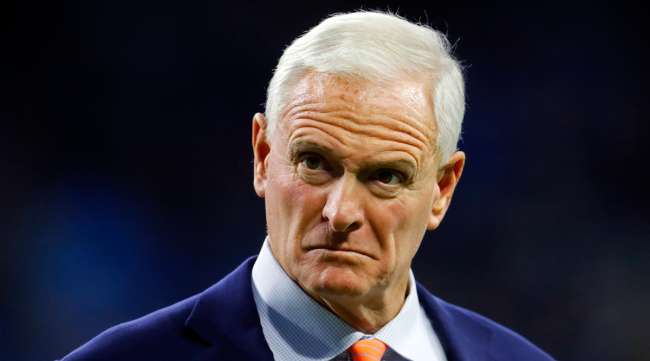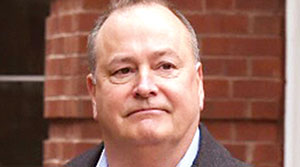Pilot Flying J Owner Jimmy Haslam Won’t Face Charges in Fraud Case

CLEVELAND – The statute of limitations ended Monday without prosecutors filing new charges in the $56 million fraud committed by top executives of Pilot Flying J, the family business of Browns owner Jimmy Haslam.
Haslam was not charged in the scheme that Pilot Flying J sales leaders used to bilk unsophisticated trucking companies out of agreed-upon rebates.
Federal prosecutors had five years from the date of the raids on the business to file the most serious charge in the investigation: conspiracy to commit mail fraud and wire fraud.
A spokeswoman for the U.S. Attorney's office in Knoxville, Tennessee, declined to comment or to address the question of whether prosecutors would seek to extend the deadline by filing a waiver, a move that is rarely used.
Already, 17 former employees, including the company's former president, were convicted of fraud-related charges. A spokeswoman for Pilot Flying J declined to comment about the passing of the statute of limitations. Haslam previously said he knew nothing about the fraud.
An FBI affidavit, however, quoted an informant saying that Haslam and his one-time president, Mark Hazelwood, were in sales meetings where the scheme was discussed. A federal jury convicted Hazelwood in February of conspiracy to commit mail fraud and wire fraud, and he faces 21 years in prison when he is sentenced in August.

Mark Hazelwood (Michael Patrick/Knoxville News Sentinel)
The jury also convicted sales executive Scott Wombold and account representative Heather Jones. They also will be sentenced in August.
Hazelwood earned more than $26 million a year when federal agents raided the company's headquarters April 15, 2013, the day the statute of limitations began. Since federal courthouses are closed Sunday, the five-year statute was extended one more day.
Hazelwood became a lightning rod in the case when prosecutors played tapes, secretly recorded by an FBI informant, that included Hazelwood's racist rants against the city of Cleveland, the Browns and their fans.
RELATED: Hazelwood attorney says feds are making a crime out of civil fraud
Prosecutors released the tapes at trial in January. They said the tapes, which were made by an informant just months after Haslam bought the Browns in 2012, countered defense claims that Hazelwood was an excellent administrator who cared about people and the company.
Haslam was not at the meeting. He fired Hazelwood in May 2014, soon after he learned of the recordings.
Hazelwood's attorney, Rusty Hardin, did not return repeated messages seeking comment last week.
Haslam's attorney, Tom Dillard, confirmed in January, through a spokesman, that Haslam never received a target letter, the name given to a notice that authorities say federal prosecutors in white-collar crime cases often send to a person that spells out that he or she is under investigation. In the letter, prosecutors describe the allegations and urge the person to obtain legal counsel.
The company's spokesman said in January that Haslam cooperated with federal authorities from the beginning of the investigation.
Legal experts said that an investigation could be extended if prosecutors seek a waiver of the statute of limitations by obtaining an agreement with a person's defense counsel. That is extremely rare and used in long-term investigations.
Pilot Flying J is the nation's largest operator of travel centers, catering to the fuel needs of over-the-road trucking companies. The scheme unfolded like this, according to court records and trial testimony:
Top executives of Pilot Flying J's sales staff targeted trucking companies and withheld tens of thousands of dollars a month in rebates.
The more fuel the trucking companies bought from Pilot Flying J, the greater the rebates should have been. But the executives returned only a fraction of the money owed to the companies, a move to gain greater commissions, prosecutors said at the trial. The fraud began in about 2008, and prosecutors said Hazelwood led the scheme.
The company has paid more than $85 million in settlements to trucking companies cheated in the scam, as well as a $92 million penalty to the U.S. Justice Department. The company has sales of more than $20 billion a year.
Plain Dealer reporter James F. McCarty contributed to this report.
Distributed by Tribune Content Agency, LLC




